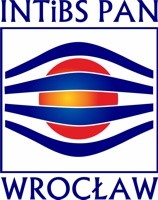Institute of Low Temperature and Structure Research, PAS

Name: Institute of Low Temperature and Structure Research, PAS
Address: ul. Okólna 2, 50-422 Wrocław, Poland
Website: www.intibs.pl
Description:
For more than 50 years the Institute has been one of the leaders of low temperature and structure research in Poland. Its scientific profile includes wide research of the structure of condensed matter and its relationship to physical, chemical and spectroscopic properties of various materials, especially at low temperature and in high magnetic fields. Institute’s specialty are syntheses and investigations of novel compounds based i.a. on lanthanides and actinides, interested from the point of view of magnetism, superconductivity, light emission and conversion, catalysis, physics of phase transition and molecular spectroscopy. 100+ highly qualified scientists and 40+ skilful PhD students, passionate about revealing secrets of nature, conduct their day-to-day research in state-of-the-art laboratories of the Institute and in cooperation with the best universities, research centres and large scientific facilities on all continents. Their articles (about 200-300 per year) published in high-rank scientific journals (including Nature, Nature Physics and Nature Materials) and 200+ national and international patents makes the Institute one of the most recognizable Polish scientific centres in the world. Combined with a friendly and open atmosphere of the 1000-year old, academic city of Wrocław, it is an ideal place for ambitious young leaders, who would like to accelerate their careers through their own research projects.
Disciplines: physics, chemistry, materials science
Fields of activity:
- low-temperature physics – magnetism of 4f- and 5f-electron intermetallic compounds, strongly correlated systems, quantum criticality, unconventional superconductivity, topological matter, thermoelectric and magnetocaloric materials, thermal properties of solids;
- optical spectroscopy: mono-, micro- and nano crystals and luminescent materials suitable for: lasers, lighting, enhanced efficiency solar cells, protection of documents and banknotes against counterfeiting, light conversion;
- nano-bio-technology: electroluminescent nanomaterials, scintillation materials, organic and inorganic nanometric phosphors, photonic and conductive materials, polymers, biocomposites, quantum dots, biomaterials and luminescent core-shell lanthanide doped nanomaterials for: theranostics, (bio)sensors, super-resolution imaging, luminescent nanothermometry;
- structure research – crystal structure and structural phase transformations of functional materials, metal-organic frameworks, perovskites, correlated structural disorder in crystals, structural and functional properties of metallophtalocyanines;
- molecular spectroscopy – intermolecular interactions in crystals, molecular dynamics, complexes of amino acids and amines;
- catalysis – highly dispersed catalytically active materials, microstructure-reactivity relations in nano-size metal and oxide particles, metal-support interactions in heterogeneous catalysis, environmental catalysis;
- theory of condensed matter – superfluid phase transitions in systems of bosons in optical lattices, excitonic superfluidity, layered high-temperature superconductors, phase transitions in two-dimensional quantum magnetic systems, quantum critical behaviour in strongly correlated systems, ab-initio calculations of electronic structure of solids.
Latest achievements:
- Discovery of laser-induced white emission of graphene foam and characterization of principal optical parameters in view of application in lighting industry;
- Studies of very efficient laser-induced generation of hydrogen from alcohols with dispersed graphene foam particles;
- Theoretical predictions and simulations, synthesis and evaluation of lanthanide doped core-shell up-conversion and photon avalanche nanoparticles for applications in super-resolution imaging, enhanced FRET bio-sensing, remote thermometry;
- Development of a new concept of excited state absorption based luminescent nano-thermometry and thermal imaging – synthesis, theoretical and experimental verification;
- Development of rare earths and transition metal doped luminescent nano-thermometers – concepts, synthesis and experimental evaluation;
- Implementation of innovative technology of nanohydroxyapatite synthesis for biomedical applications and third generation hydrogel dressing materials and nanogels in products for application to skin and mucous membranes characterized by keeping a wound in an optimally moist environment and accelerating wound healing process;
- Discovery of magnetic-field-driven quantum criticality in a cerium-based intermetallic compound.
Research facilities:
- numerous chemical laboratories allowing for syntheses of polycrystalline samples, growing single crystals, preparation of nanoparticles, deposition of thin layers, syntheses of polymers etc. by means of wide range of conventional and modern high- and low-temperature methods;
- laboratories for full sample characterization by means of single-crystal and powder X-ray diffraction, high-resolution electron microscopy, energy-dispersive X-ray spectroscopy, mass spectrometry, thermal analysis etc.
- numerous low- and ultra-low-temperature laboratories for bulk thermodynamic and transport properties measurements under extreme conditions (high fields and high pressure);
- optical spectroscopy laboratories with numerous state-of-the-art spectrometers with various configuration, dedicated to measurements of excitation spectra, emission and kinetics of luminescence in a wide range of temperatures, laser sources, parametric oscillators, two-photon confocal microscope, etc.
- permanent access to Wrocław Centre for Networking and Supercomputing for theoretical calculations.
Contact person:
Professor Adam Pikul
Deputy Director for Scientific Affairs
a.pikul@intibs.pl
(+48 71) 3954 244
